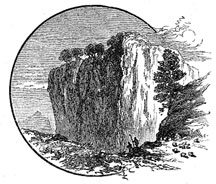
P.O. Box 1333
Merchantville NJ 08109, USA
Email: info@arxpub.com
 |
Arx
Publishing, LLC P.O. Box 1333 Merchantville NJ 08109, USA Email: info@arxpub.com |
|
|
|
||
 |
THE Tarpeian Rock An Annual Literary Magazine "Hinc ad Tarpeiam sedem et Capitolia ducit aurea nunc, olim siluestribus horrida dumis." --Virgil's Aeneid, VIII, l. 347-8 |
Articles
from the 2004 issue... Over the Target Elfland's Ethics Return to Tarpeian Rock homepage |
“There are certain well-defined and narrowly limited classes of speech, the prevention and punishment of which have never been thought to raise any Constitutional problem. These include the lewd and obscene, the profane, the libelous, and the insulting or ‘fighting’ words....It has been well observed that such utterances are no essential part of any exposition of ideas, and are of such slight social value as a step to truth that any benefit that may be derived from them is clearly outweighed by the social interest in order and morality.” (Chaplinsky v. New Hampshire)This decision was reaffirmed in Roth v. the United States in 1957. Then came the 1960s. The Constitution became a “living” document and rights that the Founding Fathers never envisioned were created out of thin air by a judiciary intent on kulturkampf. Forty years later, obscenity is on billboards, TV, the Internet, in books, magazines, movies, product catalogs—everywhere.